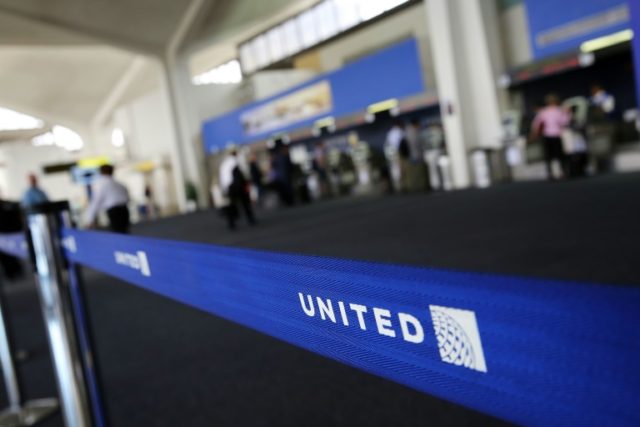Chicago (AFP) – United Airlines set out to repair its image Thursday, reaching an undisclosed settlement with the dragged passenger at the center of a worldwide uproar and promising to refocus on customer service.
David Dao, the passenger left bloodied by the April 9 incident captured on video and widely shared on social media, reached an “amicable settlement” with United, his lawyers announced.
Under the terms of the deal, the amount of the settlement are to remain confidential.
Dao was pulled from his seat and dragged off the full plane by airport security in Chicago to make room for airline crew. The 69-year-old doctor suffered a concussion, and a broken nose and teeth, according to his lawyers.
After initial missteps in which the company appeared to at least partially blame Dao, the carrier and CEO Munoz apologized repeatedly and launched the internal review to find out what went wrong.
United’s chief executive Oscar Munoz promised to refocus on customers, as the company revealed a number of operational changes.
“We breached public trust, and it’s a serious breach,” Munoz told NBC News.
The airline will now offer passengers up to $10,000 in compensation to be bumped off overbooked flights, and promised to reduce overbooking in the first place.
Those and other changes, which the airline called “substantial,” are the result of a two-week internal probe of the April 9 incident, video of which went viral.
In an interview Thursday with NBC News, Munoz said the airline will refocus its business by “putting the customer at the center” and avoiding issues in which employees, passengers and law enforcement are placed in “impossible situations.”
The carrier’s report highlighted 10 changes, including the increased financial enticement, which goes into effect Friday to get customers to voluntarily give up their seats on overbooked flights.
The crew on Flight 3411 had only offered $1,000, the report said.
– Modest changes –
United also has pledged to reduce overbooking — the practice of selling more tickets than seats on a plane to account for no-shows — on certain flights “that historically have experienced lower volunteer rates,” United spokeswoman Maggie Schmerin told AFP.
Such flights include those that are the last of the day and on smaller planes, both of which were factors on Flight 3411.
Without enough volunteers to take later flights, airlines are forced to involuntarily “bump” passengers off overbooked planes.
“It is our goal to reduce involuntarily denied boarding to as close to zero as possible,” Schmerin said.
Seth Kaplan, managing partner of the trade publication Airline Weekly, told AFP that the changes announced Thursday will help improve United’s image, but he characterized many of them as modest.
“Some of this is catching up with competitors,” Kaplan said. “I don’t think in the aggregate they’re going to reduce overbooking dramatically.”
Dao attorney Thomas Demetrio applauded United’s move, calling the changes “passenger friendly.” He also praised the airline for settling with his client.
“Mr Munoz said he was going to do the right thing, and he has,” Demetrio said.
“United has taken full responsibility for what happened,” he said, “without attempting to blame others.”
United was not the only airline to modify its practices, as the dragging incident and its aftermath reverberated throughout the industry.
The airline already has altered some policies, including no longer relying on law enforcement to deal with customer service issues.
In addition, United and American ended the practice of asking passengers already seated on planes to give up their seats.
And, Delta Airlines was first to raise to $10,000 the amount it would pay for volunteers to get off overbooked flights.

COMMENTS
Please let us know if you're having issues with commenting.